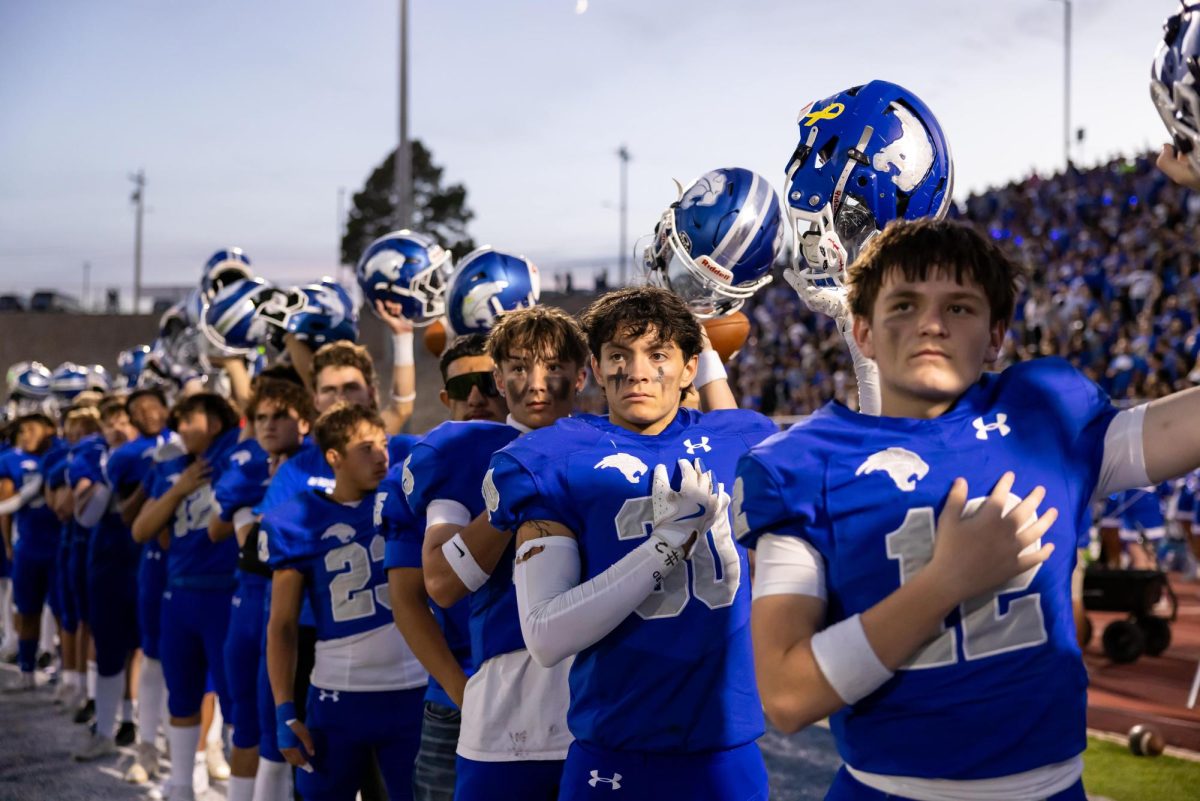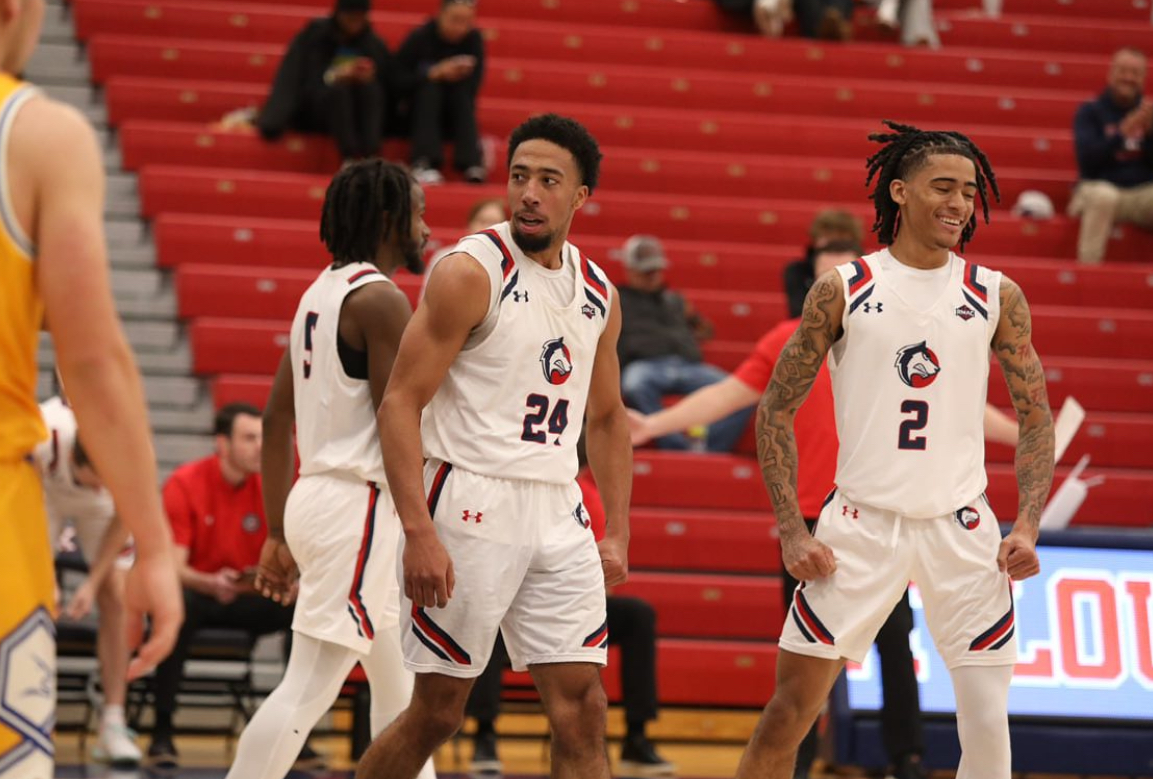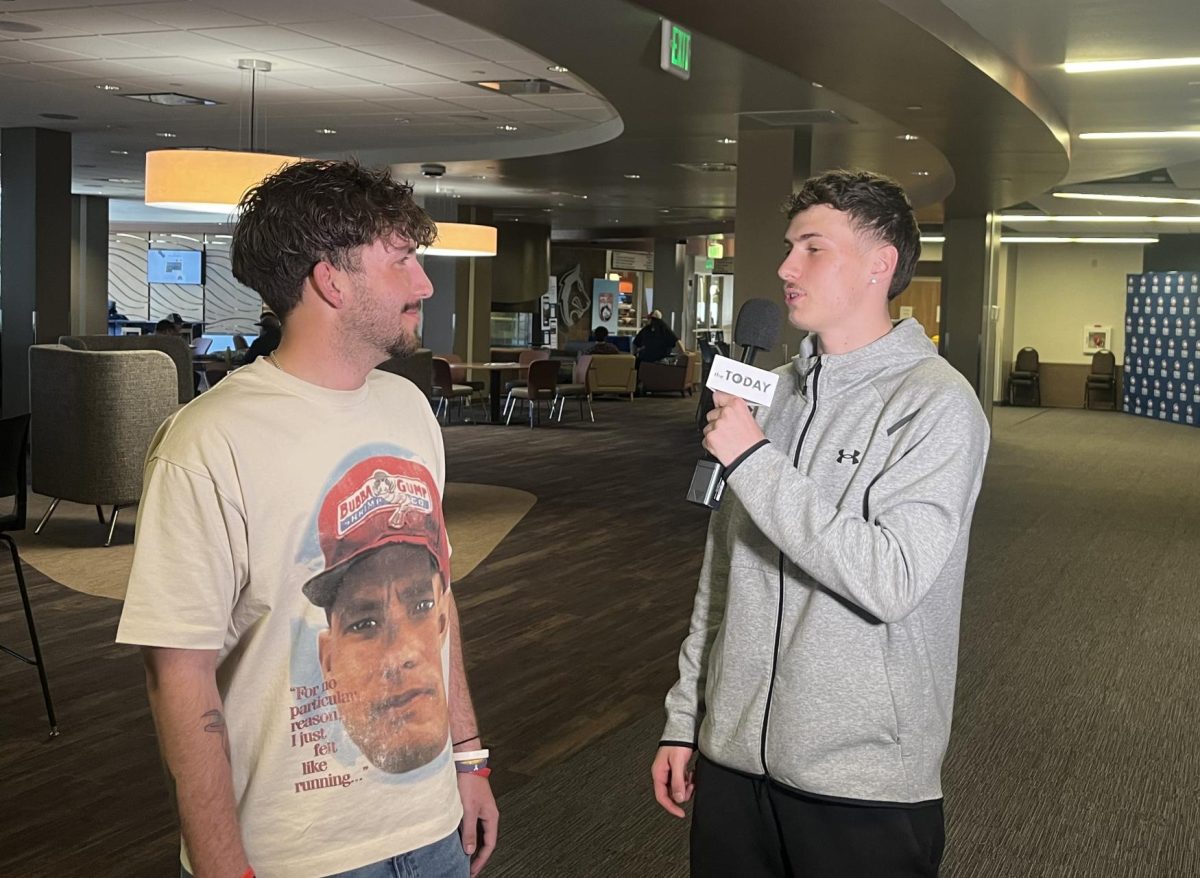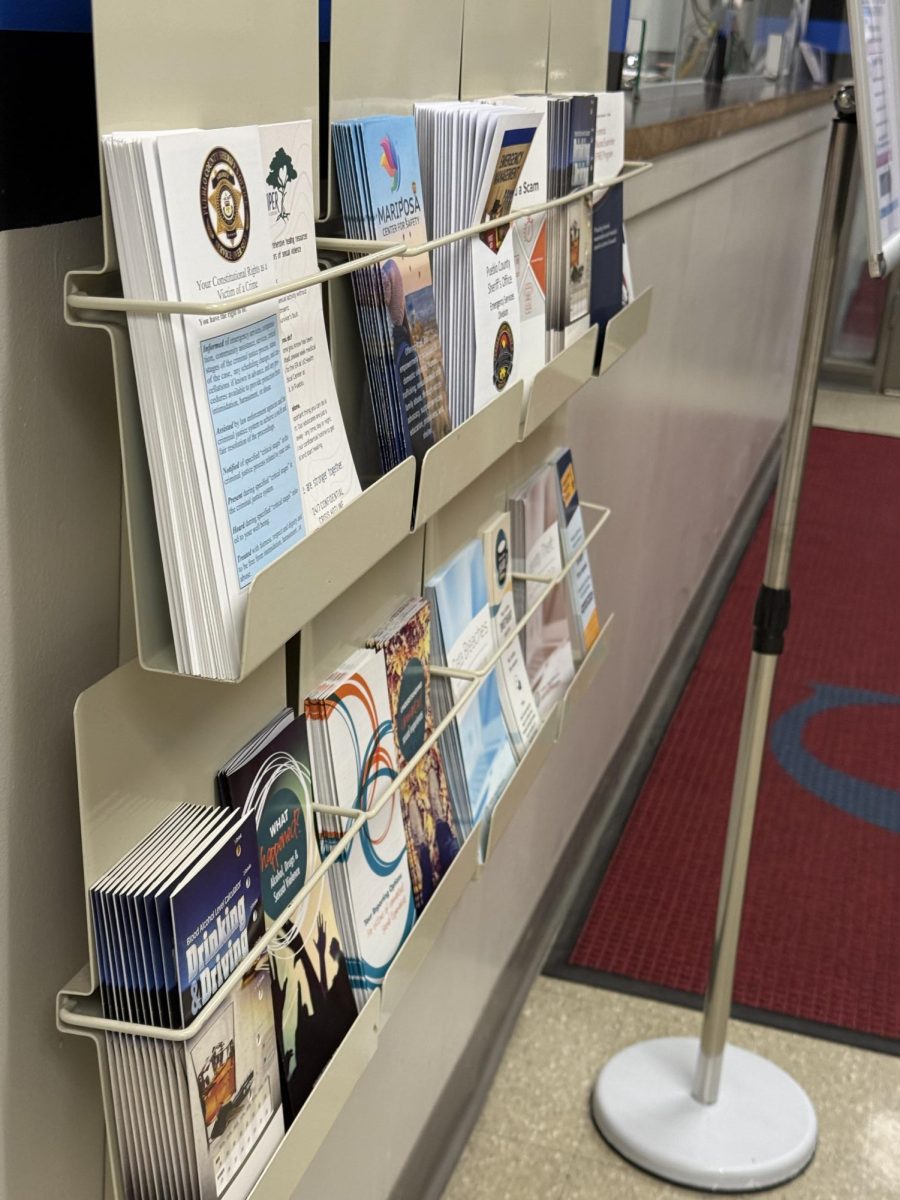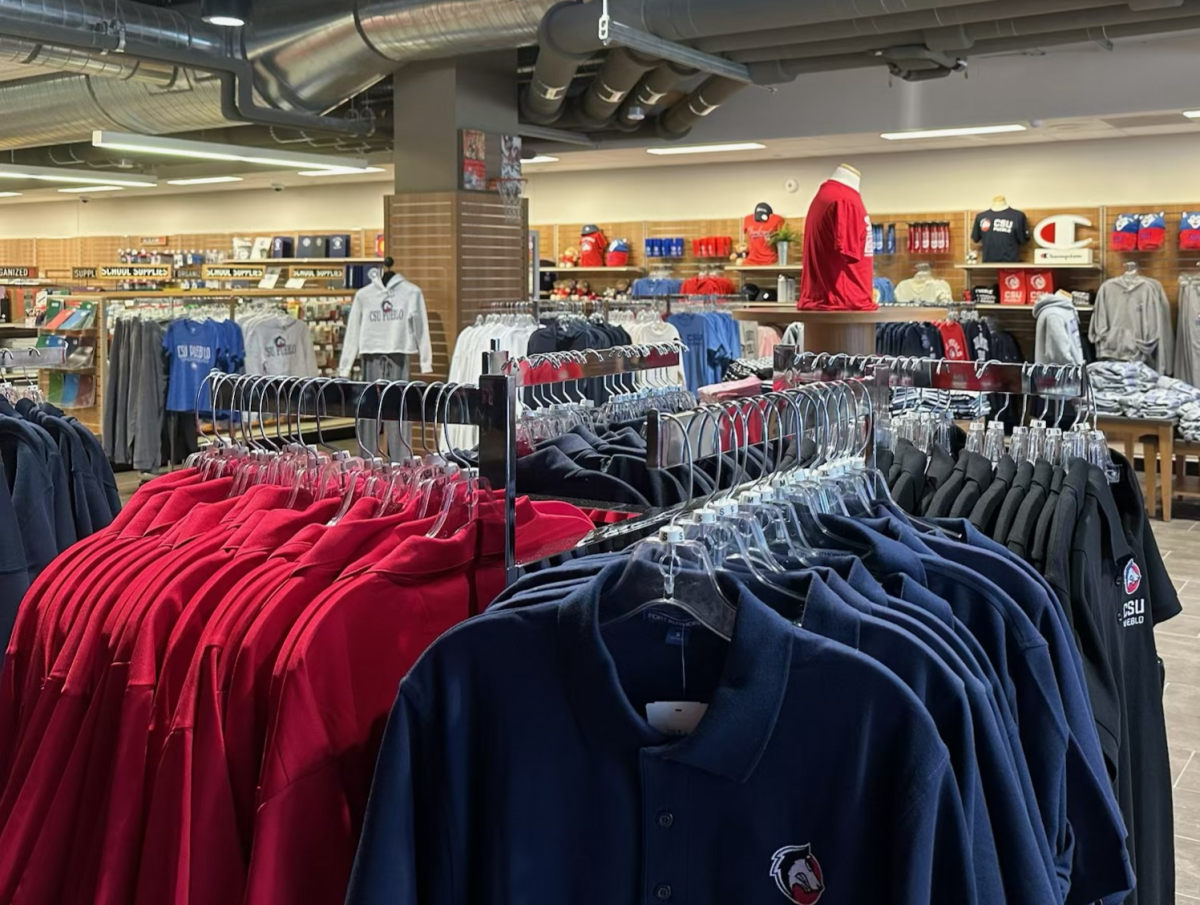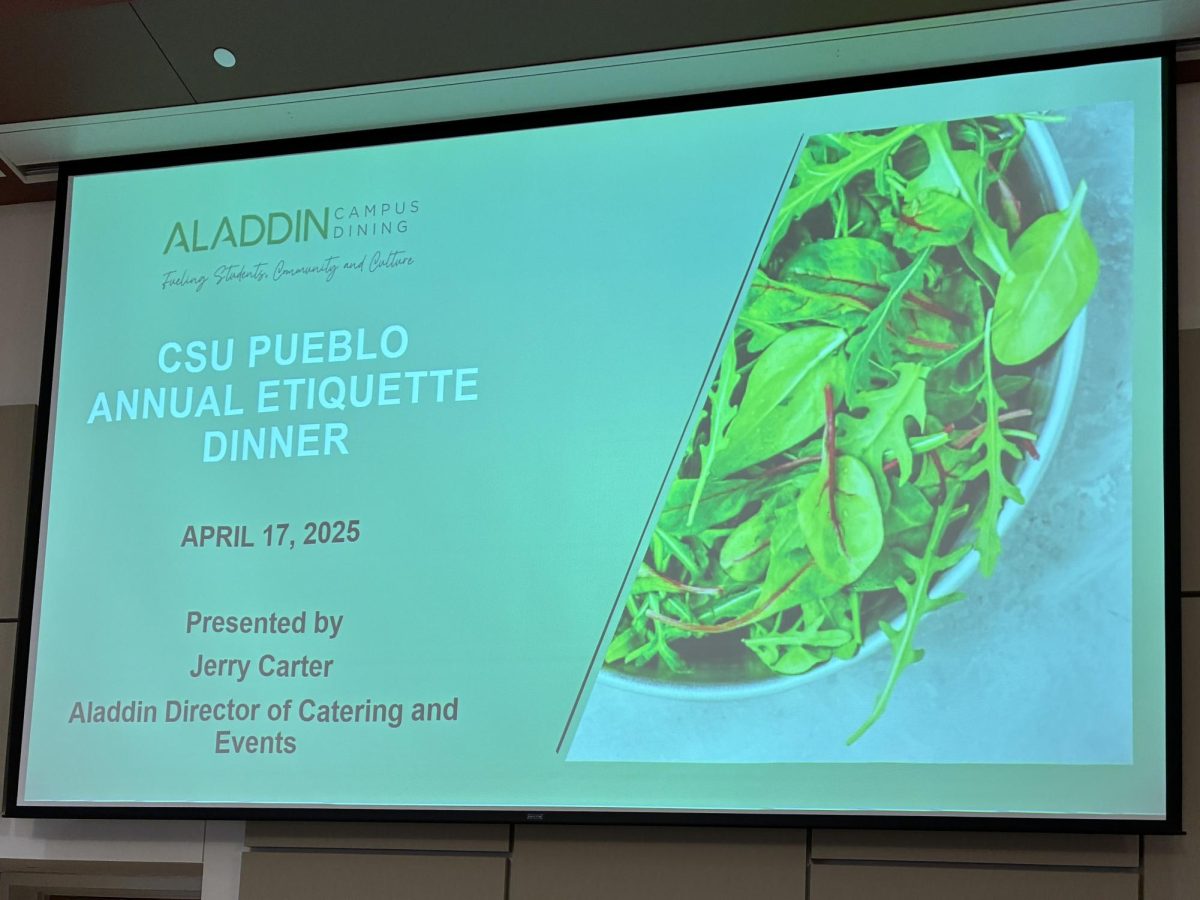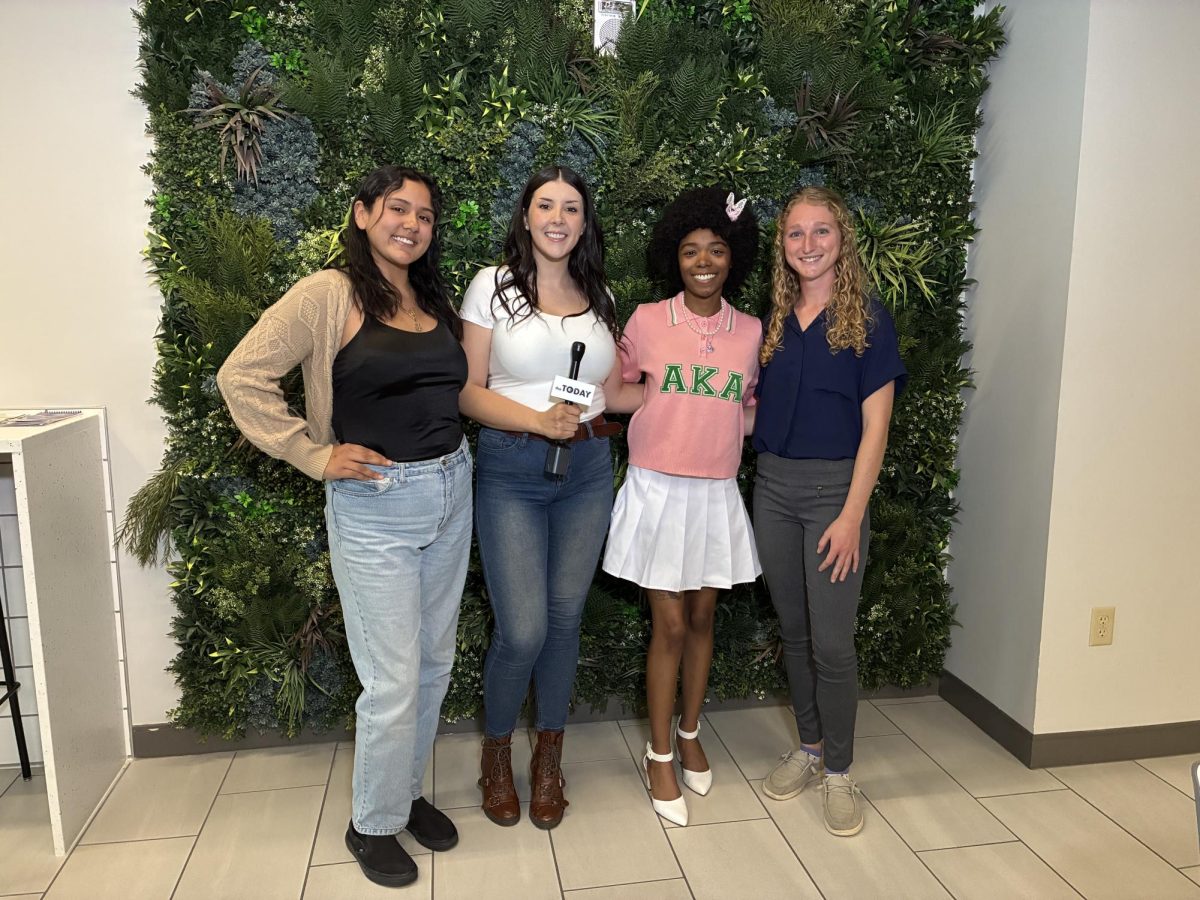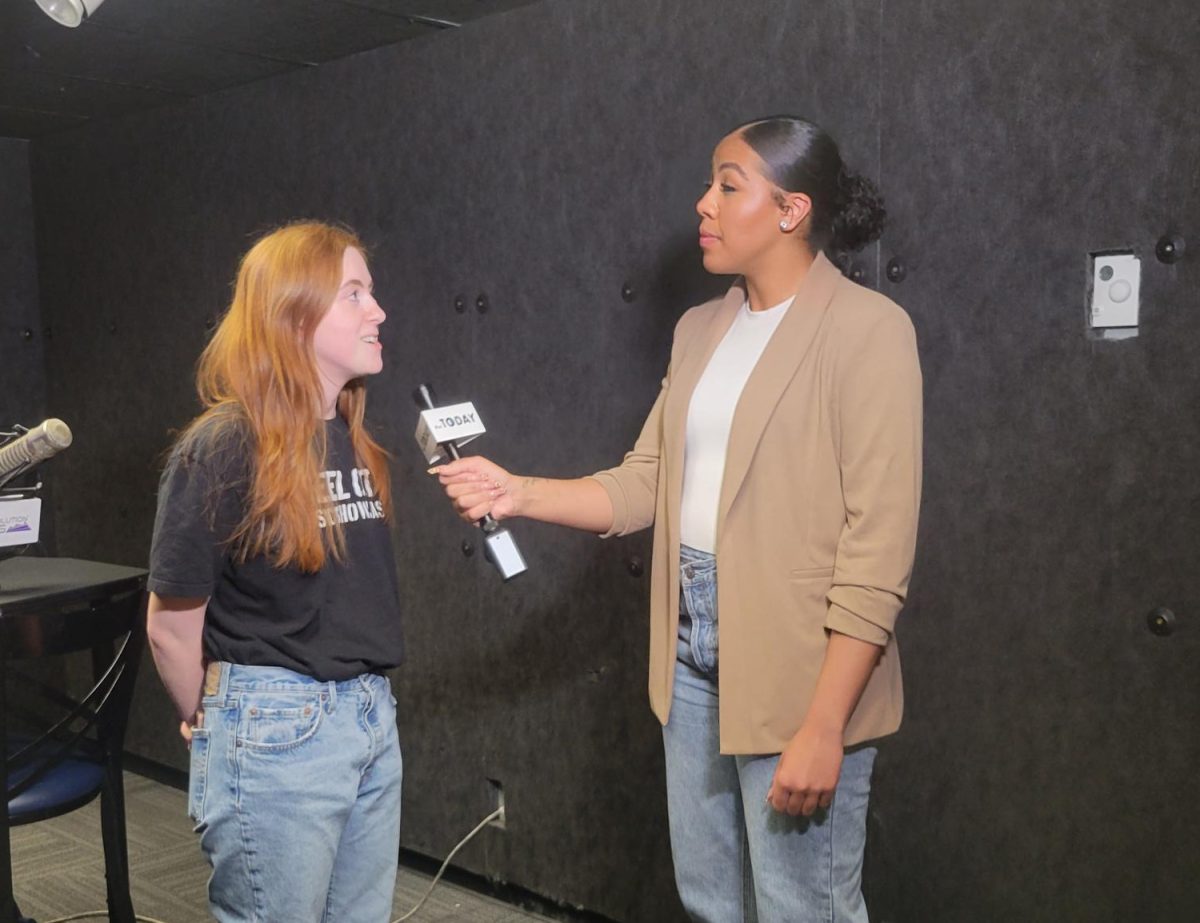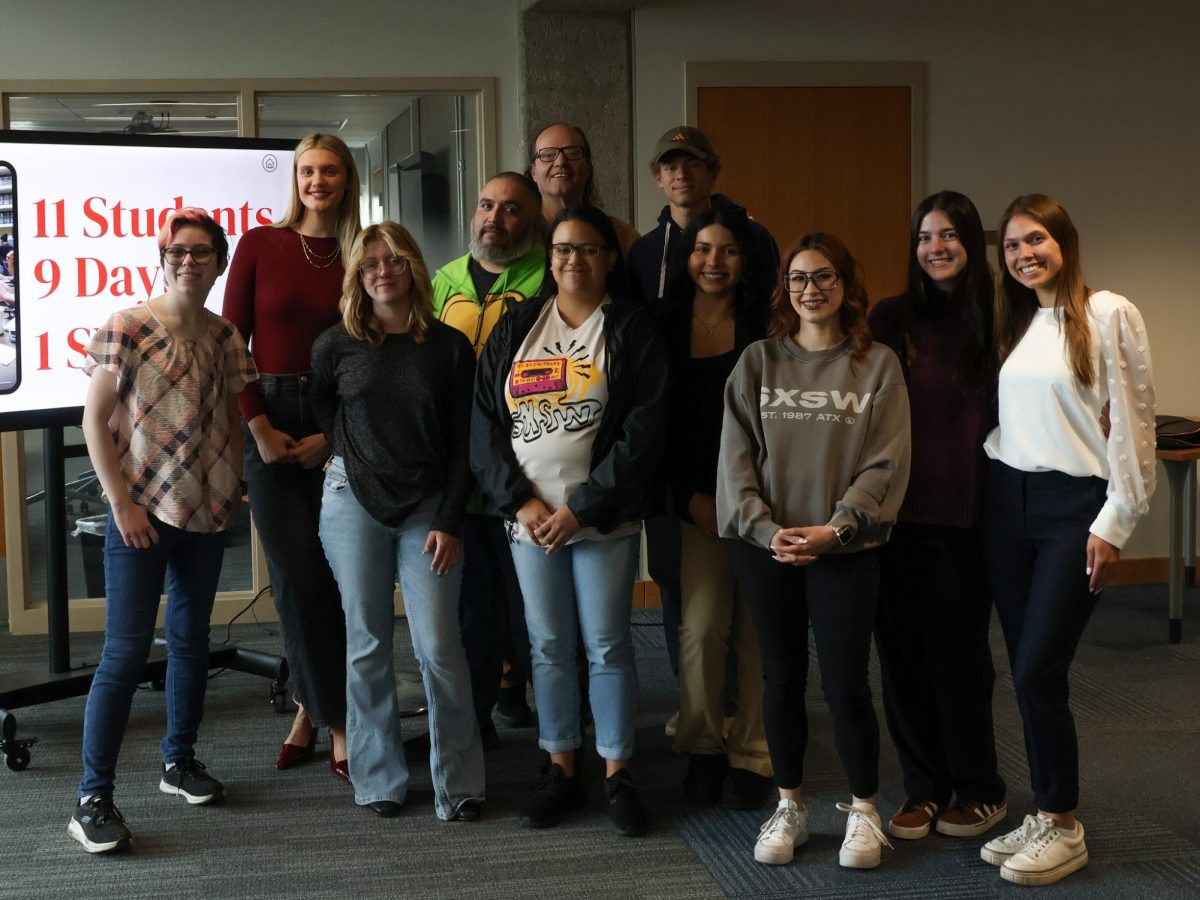The path to opportunity may not be linear for all athletes, but with perseverance and drive, goals can be achieved. Dylan Viebrantz-Zavatini is the epitome of creating opportunity from challenges and turning it into experience.
Viebrantz-Zavatini, a 23-year-old from Joinville, Santa Catarina Brazil shares how football, or as Ameircans call it, soccer, has shaped him into the man that he is today. While the sport has provided him opportunity, it’s important to look past Viebrantz-Zavatini as an athlete and truly get to know him as a person.
Viebrantz-Zavatini, born in Fort Lauderdale, Fla., in 2001 is the lone member out of his mother, father and brother to have U.S. citizenship. After spending just two years in the United States, in 2003, Viebrantz-Zavatini’s family moved back to Brazil, which was home to both of his parents. While he did not remember much of his time in the states, it would later become his home away from home.
Raised in Joinville, the largest city in the state of Santa Catarina, Viebrantz-Zavatini shared what it was like growing up there. While it is not necessarily what people imagine when they think of Brazil, it is an industrial city where people are constantly on the go, and it is full of German culture. With some knowledge on the city’s history, Viebrantz-Zavatini shares that the Germans came over in the 1850s and have left an impact with their culture.
Joinville is a hub for art and culture, and being located in Brazil, it is inevitable that the culture of football also is spread through the streets. While the love for the game is in Viebrantz-Zavatini’s blood, it is not something in which all of his family participated. His father was “not much of a sports guy,” but Viebrantz-Zavatini received some of his athletic genes from his mother. As a competitive volleyball player, she had wanted her son to play as well. While volleyball was not in the books for Viebrantz-Zavatini, his community and his uncle, who doubled as his godfather, were a big influence on his passion.
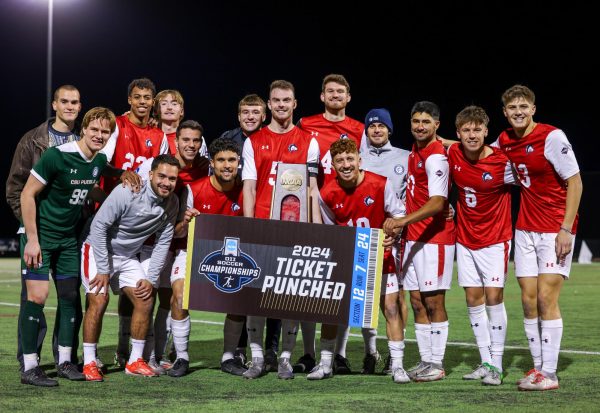
Viebrantz-Zavatini’s earliest memory picking up a football was in preschool and that was the moment he fell in love with the sport. He began playing at the age of 4 for teams within his school. The school had indoor fields that they played on and the students found every opportunity to play.
While Viebrantz-Zavatini was fortunate enough to almost always have a ball to play with, when they didn’t have one at school, they would get socks and fill them with papers to make do with what they had.
“The soccer culture is to the point you go places and all you see is soccer. There are always people playing soccer, at big and small sizes. There is always something going on and everyone has a soccer ball,” he said.
He was constantly surrounded by football and around his family. Where Viebrantz-Zavatini lived, there was a church with a football field. Eager to play, he and his friends would sneak through the fence to face each other in a game, and if they were kicked out, they would take their game to the street. Much like the makeshift sock ball, if they did not have access to the field, they would make goals out of their shoes and play as if they were on a professional field. They didn’t care where they were playing, as long as they got to play they were happy.
Aside from playing football, Viebrantz-Zavatini spent his weekends at his grandparents with his family. With just a gated fence separating the two houses, his uncle, aunt and three cousins lived right by his grandma so he spent quite a bit of time there and at Prainha, São Francisco do Sul, which was his favorite beach.
As Viebrantz-Zavatini got older, his journey playing football began to advance and he started playing through soccer academies. This consisted of more organized and set games and he continued to advance his skills.
He played indoor football until the age of 12, then he started playing outdoor, and at the age of 14, he transitioned to strictly outdoor. Viebrantz-Zavatini shared that he learned a lot about the sport, but his eyes also were opened to culture and diversity through playing.
“The environment in general taught me a lot because in Brazil my living conditions were good, but being on those teams it exposed me to all different types of realities and I played with a variety of people.”
Playing taught him a lot about appreciating what he has and gave him a drive to earn more, which he did.
In Brazil, the education system consists of 12 grades, but only the last three years are high school. Viebrantz-Zavatini looks back on his education during that time and shares that the biggest difference between the U.S. and Brazil is that in the final three years of school, students do not get to pick the classes they take. Every year the students take the same subject classes and instead of the students rotating from classroom to classroom, the professor rotates.
While Zavatuni always enjoyed his time, he was quick to admit that he was not the most behaved; however, within his group, he was the most focused. He referred to himself as a “wild card,” implying that he could fit in with the smart kids but also fit in with the kids who had different priorities.
On standards, he was a “B-plus kid” and wasn’t necessarily there to go above and beyond, but he did well.
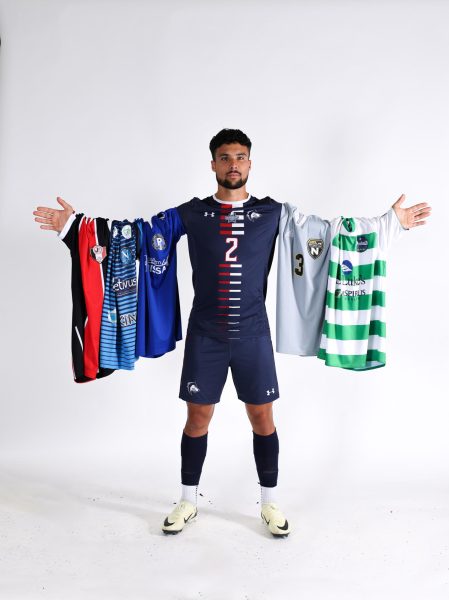
As he prepared to graduate, Viebrantz-Zavatini began to look at his options, both with football and his education. At the time, it was not very common for people around him to come to the United States to pursue higher education. Knowing a couple of older boys from his team who came to the U.S., he had it in the back of his mind, but his American citizenship made him take a deeper look.
After discussing his options, he made the decision alongside his parents to come to the United States. Viebrantz-Zavatini began to pick up on his academics through his senior year and started pushing himself.
Coming from Brazil, his first language is Portuguese, and he even went above and beyond by entering a private school where he took English classes in the evenings. At this school, most of the teachers were from Brazil, but some learned English through their time living in the U.S., and others went to school to learn it with the goal of teaching it.
Viebrantz-Zavatini said he went to learn English and grammar, and it was quite the journey. From the moment he walked into the school, he was not allowed to speak in Portuguese; they had to speak English only. While this was difficult for him at the time, it helped prepare him for this new journey.
Viebrantz-Zavatini graduated from high school in November 2018. Just three months later, his journey back to his birth state and country began.
In February of 2019, he moved his life to Florida without a set plan for his future. While he had a couple of soccer tryouts lined up, as a first-generation college student, he didn’t have a true grasp on how college worked, or even how big the state of Florida was.
At the young age of 17, Viebrantz-Zavatini left his parents and was living with his aunt in Fort Lauderdale where he was learning how to be responsible for himself.
After completing two soccer tryouts and looking into college, he realized that he didn’t know how to find his way into schools or even how to receive scholarships besides soccer. This was the moment he realized he had to work hard to achieve his goals. While the opportunity to play college football was not immediately there, he didn’t give up on his goals.
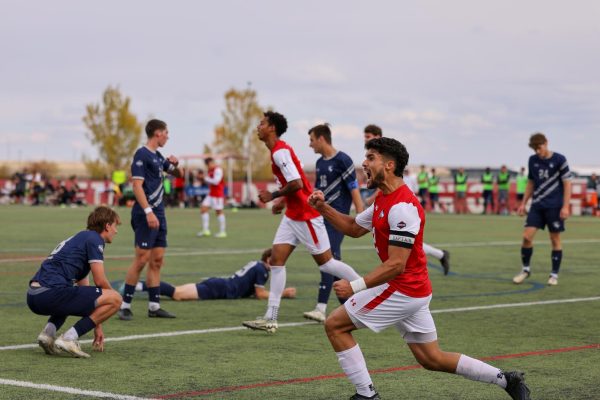
Shortly after arriving in Florida, Viebrantz-Zavatini turned 18 and he was determined to find ways to financially support himself. That March, he got his first job working at a warehouse. In the mix of his transition, due to financial circumstances, Viebrantz-Zavatini was no longer able to stay with his aunt, but instead of giving up and returning home, he began renting a room from his aunt’s friend.
Through working, Viebrantz-Zavatini knew he had to keep up on his athletic training and he played for a U19 football club. Balancing working at the warehouse and playing football, Viebrantz-Zavatini picked up a second job at a restaurant on the weekends. As if that wasn’t enough, he also received his HVAC license and was working on air conditioners around Florida.
Working to balance work and life, he took a step back from working at the warehouse, and was balancing working on HVAC systems during the week, working the restaurant on the weekends, practicing after work on weekday evenings, and playing games on the weekend.
This jack of all trades was paving the way to his own success. While it wasn’t a linear path, this time was valuable to Viebrantz-Zavatini. He was building connections, learning, growing and saving money to eventually go to college.
Just as Viebrantz-Zavatini’s future began to get brighter, that brightness was dulled by a storm. The storm that affected the entire world: Covid-19. As the world shut down in March of 2020, Viebrantz-Zavatini was no longer able to work, which meant he could no longer financially support himself.
Having no income, he had no choice but to return back to Brazil. With a catastrophic reversal, Viebrantz-Zavatini had a decision to make. Option 1, let this bring him down, or Option 2, create opportunity out of obstacles.
While in Brazil, he began recording himself and used the time at home to train and make a highlight video. While the taping of games was not the easiest in Brazil, he also used what he had from games in Florida to showcase his skills to coaches.
With no time to spare, Zavaitni started emailing NAIA schools, known as National Association of Intercollegiate Athletics, and NJCAA colleges with National Junior College Athletic Association. Despite the world being shut down, he received positive news and had several offers to play football at the collegiate level.
His decision on where he would move was dependent on his scholarship offers. Viebrantz-Zavatini shared that the best offers that he received were at schools in Colorado and Indiana. After consideration, Viebrantz-Zavatini made his decision and he shared what that moment was like.
“When I made my decision on where I would play, I was sitting there and I reached to grab my phone to commit to Northeastern Junior College. When I picked it up, the Northeastern coach called me at that exact moment and he increased my scholarship offer. I accepted it and from that moment on he was welcoming and made it a great environment.”
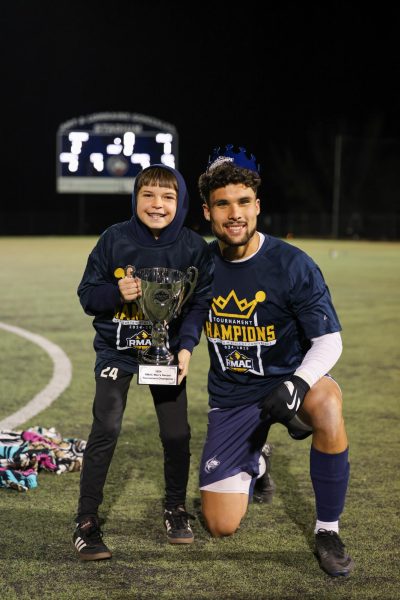
Viebrantz-Zavatini said it was a moment that would shape the trajectory of collegiate football for him. Viebrantz-Zavatini returned to the U.S. and was living in Sterling, Colo., home to approximately 13,000 people. Viebrantz-Zavatini shared that the people there were amazing from the staff, to the students, and even the community members. Much like one would expect out of a small town, there was not much to do, so Viebrantz-Zavatini and his friend kept busy playing football.
His mentality was to make something out of junior college and continue on playing at the next level, so he trained like that. Almost all of his free time was spent training and he would play outside of practice time for enjoyment and to improve his skills.
At Northeastern, Viebrantz-Zavatini was studying Health Science with Pre-Athletic Training and he had the opportunity to work as a work study with the trainers, which made him fall in love with the profession.
“Over there is where I truly learned what college life was about and what it took to be successful,” Viebrantz-Zavatini shared. As he was a multitasker before, at this school, Viebrantz-Zavatini was on academic scholarships, a work study, an athlete, an ambassador and even a resident assistant. This work ethic led him to meet people from all over the world, most of whom were international students, and graduate after two years with an Associate’s of Science degree. As if that wasn’t impressive enough, he maintained a 4.0 GPA through it all.
As Viebrantz-Zavatini’s time at Northeastern was coming to a close, he began his search for his next home. With the goal to play soccer at the next level, his main focus was also finding a university that had a master’s degree program for athletic training. He was looking at schools nearby and much like his search in the start, he reached out to coaches and Colorado State University Pueblo’s assistant coach invited him to come tryout alongside two other Northeastern players.
When Viebrantz-Zavatini and his teammates arrived at CSU Pueblo, they thought that they were the only ones coming, but little did they know, players flew in from all over the world to try out. It was like an all-star game, but despite the increase in talented players, Viebrantz-Zavatini’s skills earned him an offer from head coach Oliver Twelvetrees. While this scholarship did not cover everything, he had other financial support through academic scholarships and financial aid, including Juco transfer, first generation, out of state, and his drive would later help him earn more.
CSU Pueblo was the perfect fit for Viebrantz-Zavatini, having a great athletic training program and a history-making soccer team. While his skills earned him a spot on the soccer team, Viebrantz-Zavatini did not hesitate to share that Northeaster “trainers Ryan and Bill” played a role in him getting into the athletic program, which he is forever thankful for.
Now playing at the DII level, it was an entirely different soccer journey. With the assumption that Viebrantz-Zavatini would be competing for playing time against Americans, he was one of three Brazilians on the team, with most of the players coming from other countries.
He had to raise his level and dedication to play. Viebrantz-Zavatini realized that he had a gap to fill in order to “earn his minutes.”
He went from only playing around 20 minutes per game to being a starter and one of the best center backs in the country for a team that would make history and be one of the best in the country.
In fall of 2022, CSU Pueblo men’s soccer became RMAC Tournament Runner-Ups and earned themselves a spot in the NCAA DII National Tournament. While the talent on this team was evident, it is not often that one gets to be a part of making history as Viebrantz-Zavatini did.
Through the national tournament, Viebrantz-Zavatini did not play much. However, through development and perseverance, Viebrantz-Zavatini and teammate Ignatius DeMark went from underdogs to starting players in the tournament. They helped lead the team to making the national final and went on to be starters in the 2022 NCAA DII National Final.
While the team fell short to Franklin Pierce, they earned themselves National Runner-Ups and made history as this was the longest postseason that the CSU Pueblo Men’s Soccer team had ever had. Viebrantz-Zavatini shared that he was fortunate that the year was a festival year, hosting nationals for numerous sports, and it was something he had never experienced. It was an overwhelming experience with people from all over.
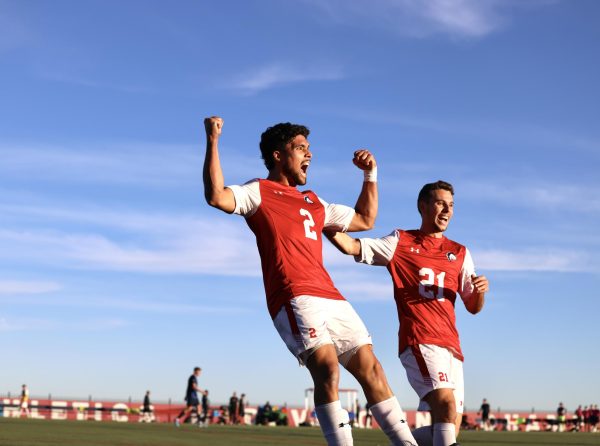
The 2022 season did not end the way he had wished, but it set him up for success for the next season. In 2023, he was a starter for most of the season, until he faced a moment that no athlete would ever wish to experience. During a game, Viebrantz-Zavatini was hit and fell unconscious. He was pulled out of the game where he was diagnosed with a concussion. Accustomed to obstacles, he took the time he needed to recover then continued playing.
Much like deja vu, the 2023 CSU Pueblo soccer season was a copy and paste version of 2022. Viebrantz-Zavatini led his team to another national final where he started, this time in Matthews, N.C. They faced the same team, with most of the same players, at the same time of the year, and unfortunately, they had the same outcome.
As Viebrantz-Zavatini reflects on his experience, for both years he would dream about it but he didn’t know it was attainable. Game after game the team grew its culture and with most of the players returning, it was a matter of time that they would make that journey once more. The team had a chip on its shoulder playing the same team a second year and the players felt like they had it. However with injuries and challenges, the team was left defeated.
With one year left of eligibility, Viebrantz-Zavatini aimed to have a similar cycle this season, and with the excitement of new players, he had the same goal to go far. Much like his first season, the 2024 season was up and down. He started in the beginning and endured struggles that caused him to be benched. However, with perseverance he earned his spot back and was a powerhouse in the postseason for the Thunderwolves.
Out of the four games of nationals playoff action, Viebrantz-Zavatini scored in two of them. With this being his last year, his mentality knowing it was the end was to leave it all on the field. Each game he pushed to do all that he could on the field because any game could be his last not only for CSU Pueblo, but as a collegiate athlete. It was something that took a while to process.
Making it to the NCAA DII final four for the third year in a row, Viebrantz-Zavatini had one last chance to win the gold. Falling slightly shorter than the year before, the Thunderwolves lost in the final four game against Charleston. To Viebrantz-Zavatini, it was hard to believe that this chapter had ended.
Reflecting on his time at CSU Pueblo, he said that the people and the city hold a special place in his heart.
In preparation to shift his focus to a new chapter, one full of work and academics, Viebrantz-Zavatini wished to keep soccer as a part of his life. Shortly after the 2024 season, CSU Pueblo head coach, Oliver Twelvetrees was hired as the new head coach at Florida Gulf Coast a DI University. At the same time, the NCAA announced that those who went to junior college would be granted one additional year of eligibility to play at the Division I level. Just as Viebrantz-Zavatini thought his soccer journey was over, he was offered the opportunity to play back where his life started in Florida. Viebrantz-Zavatini will be continuing his final year of his master’s in athletic training and playing soccer at FGCU.
Viebrantz-Zavatini’s time playing soccer eventually will end. However, the love and passion he has for the sport never will.
“With it being in my blood for so long, I can’t go without it. There’s so much you can achieve through sports in general and I am thankful that I took the route that I did. I gained friendships, opportunities and I have learned to embrace it all.”
He is a prime example of perseverance and drive. While this journey through life wasn’t linear, and he didn’t start playing at the highest level of soccer, Viebrantz-Zavatini never gave up. He played through junior college, Div. II, and now has the opportunity to play Div. I.
Dylan takes every skill he has learned through soccer and life and is now teaching it to the younger generation. He is a prime example of tenacity and an inspiration to many around.




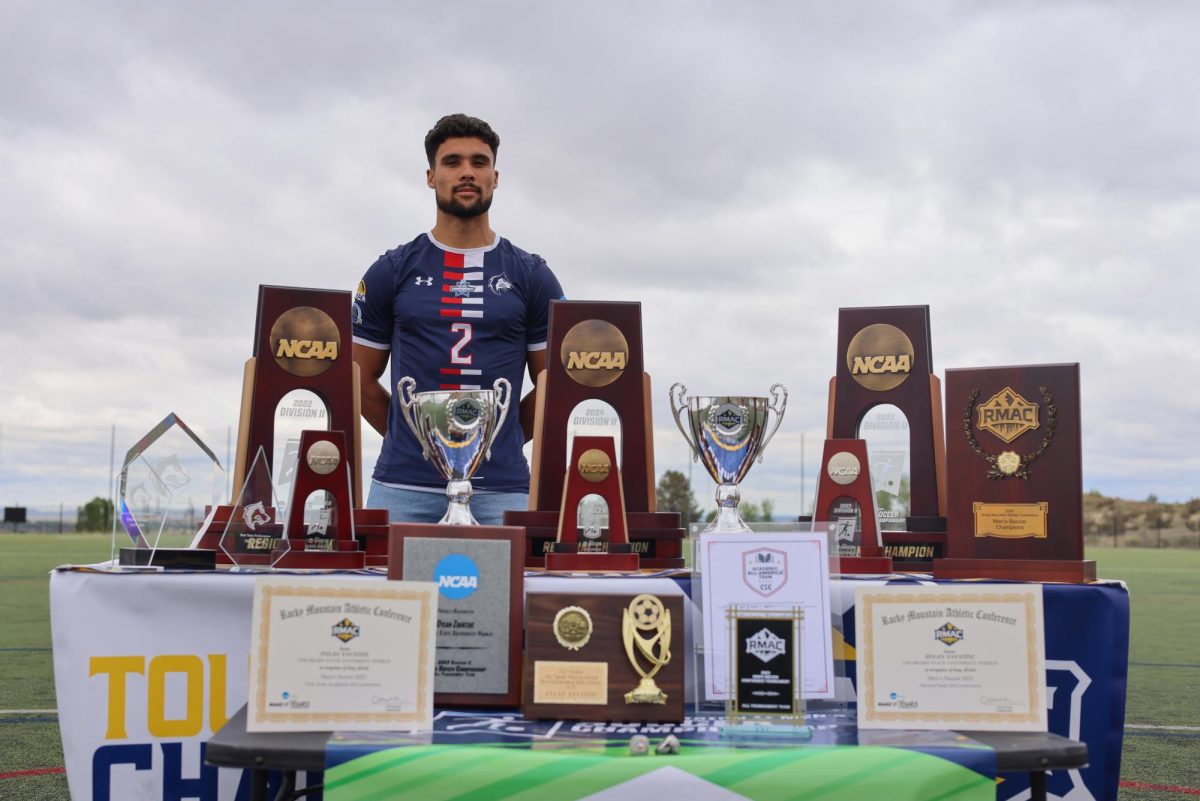
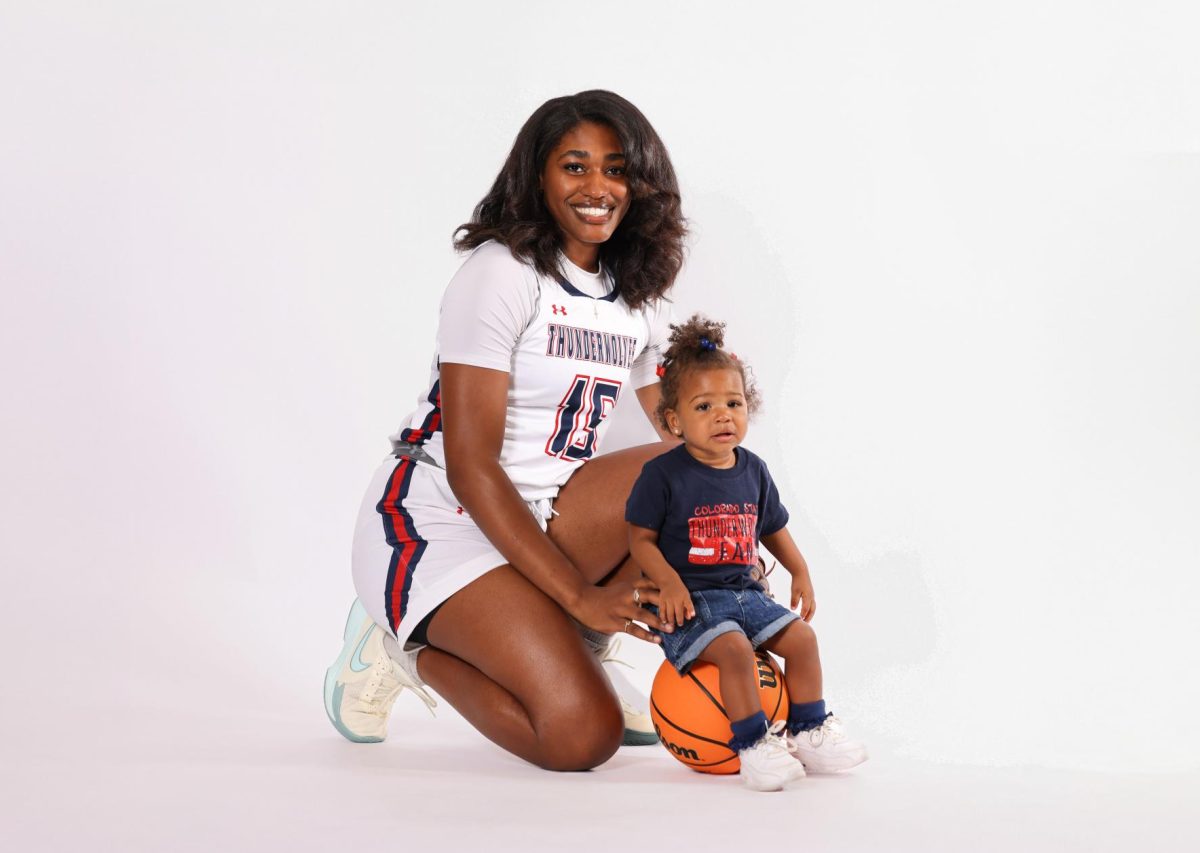
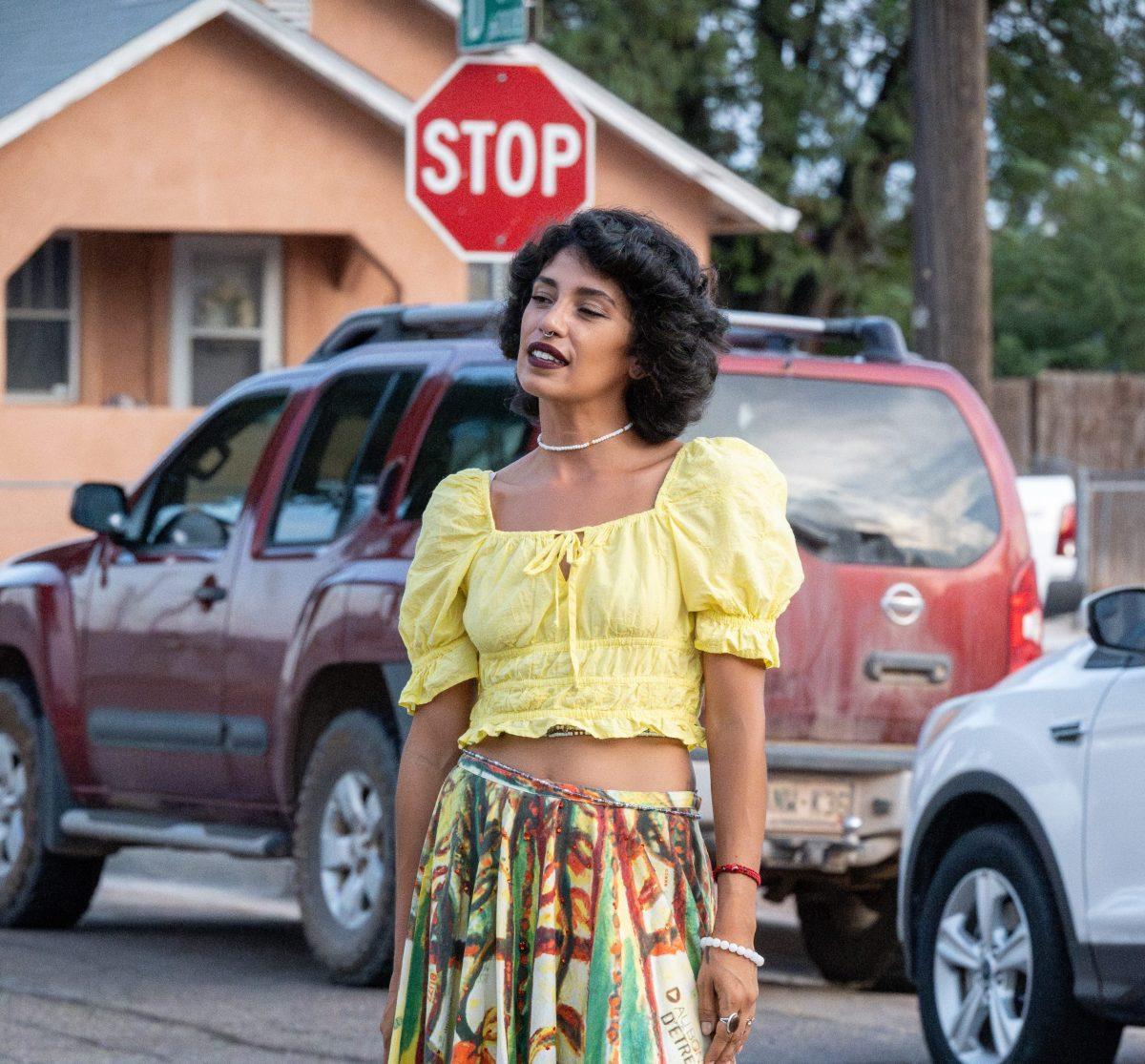
![A firefighter stands in the smoke of the June 3 Lake Minnequa Fire while a firefighting helicopter passes overhead. [Today photo/file/Kimmy Reinhardt]](https://socostudentmedia.com/wp-content/uploads/2022/06/284636131_2489009947902060_3475629797326615982_n-scaled-1-1200x900.jpg)
![FFA delegates line the stage at the Massari Arena June 9. [Today photo/Cassime Joseph]](https://socostudentmedia.com/wp-content/uploads/2022/06/Untitled-2.png)
![The Posada of Pueblo staff is a small-but-mighty team of women leaders who work for the city's most vulnerable members. [Today photos/Brianna Sammons]](https://socostudentmedia.com/wp-content/uploads/2022/03/IMG_6710-scaled-1-1200x800.jpg)
![CSU Pueblo's Katy Zimmerman is a decorated distance swimmer and a dominate force in the classroom. [Courtesy photo/CSU Pueblo Athletics]](https://socostudentmedia.com/wp-content/uploads/2022/02/Katy-Zimmerman-pic-2.jpeg)
